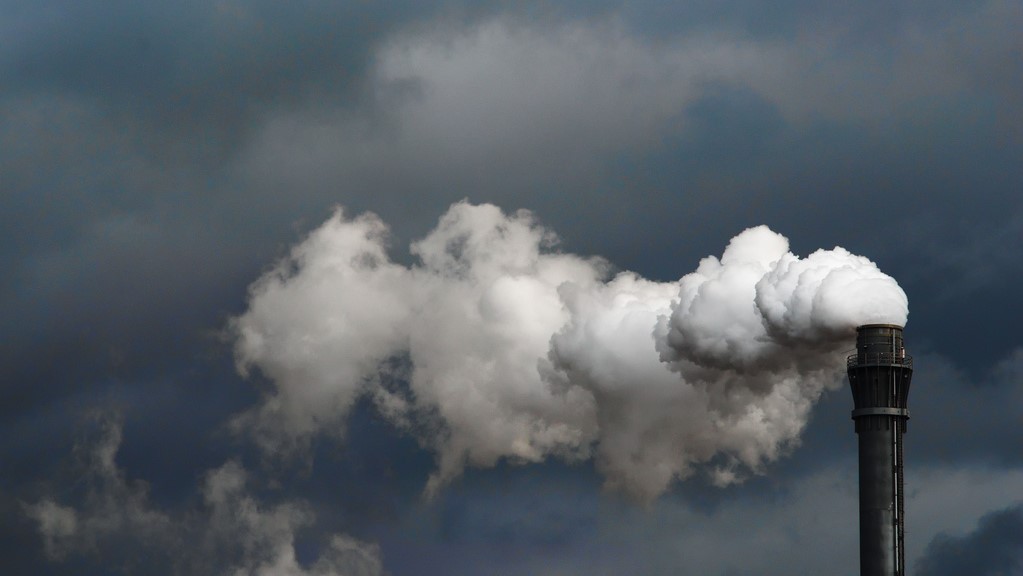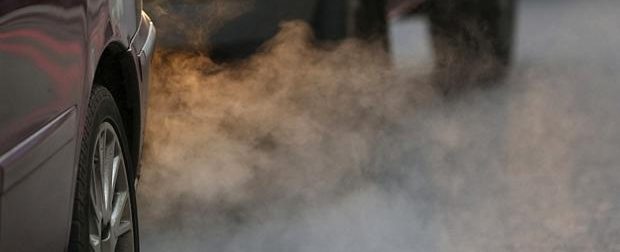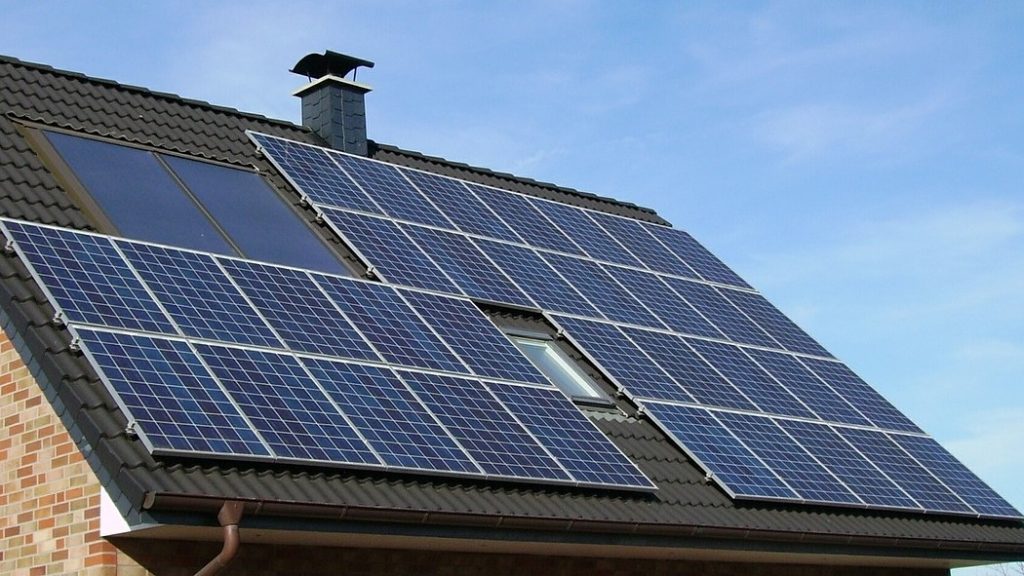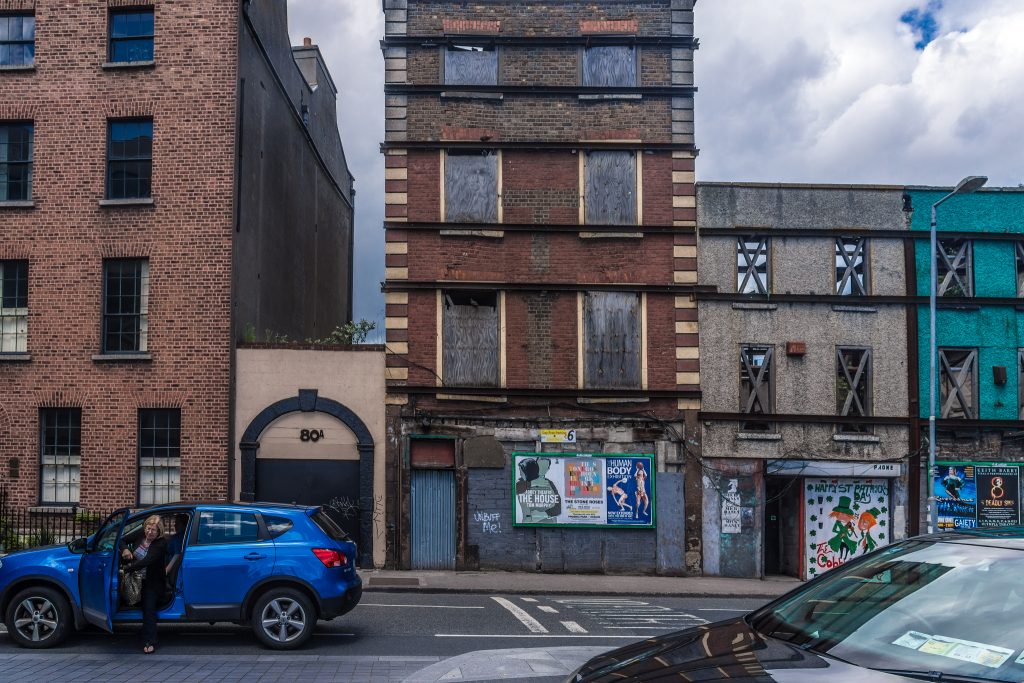Budget 2019: Where does the environment fit?

October 8th, 2018
Over the past week, opposition parties launched their alternative budget proposals, with the housing crisis taking centre stage, as well as proposals for spending on the likes of healthcare, education and other public services.
With the media focus firmly on what Budget 2019 will look like for the ‘squeezed middle’, The Green News examines what budget proposals opposition parties and civil society group are proposing for our ‘squeezed environment’.

Industrial Emissions Photo: Dirk Duckhorn
Carbon Tax
Last month, the Taoiseach said that Budget 2019 will include an increase in the carbon tax, currently €20 per tonne, to help Ireland meet its obligations in tackling climate change.
The Climate Change Advisory Council has recommended that the tax is bumped up to €30 per tonne in Budget 2019 as an “essential component” in achieving a low-carbon transition by mid-century.
A €10 euro hike is supported by the Green Party, however, the Environmental Pillar, a coalition of environmental NGOs, has proposed going even further and setting the new rate at €70 in 2019, with a €5 rise per year.
Half of the revenue should go directly to the people of Ireland in a carbon dividend shared to every adult, the coalition said.
The other half, the Pillar proposal states, should go into a fund to protect workers and communities in the move away from peat and coal, as well as funding energy-saving measures such as retrofitting.
Pillar’s spokesperson Charles Stanley-Smith said that the tax is “a lever that we can pull immediately” to support the State’s long-term targets such as the retrofitting of 45,000 homes by 2021.

Diesel Levy
Several opposition groups, together with the Environmental Pillar, are calling for the State to equalise the levy for both diesel and petrol.
Diesel is currently charged at 11c less per litre than petrol, with the European Commission warning the State to even out this “environmentally unjustified” gap.
Diesel emissions are linked to the likes of Alzheimer’s, slower brain development in children and preterm births.
The Department of Finance’s tax strategy group said last year that leaving the issue unaddressed will “result in negative environmental and health outcomes”.
The OECD has said that this preferential tax rate has “little economic, social or environmental rationale”, which, the Economic and Social Research Institute found this year is costing the State €500 million a year in potential revenue.

Photo: Jonathan Petersson
Transport
The Green Party said that its budget proposal will deliver on a “smarter transport system” by allocating 20 per cent (€330m) of the capital budget to walking and cycling infrastructure, while also spending half of the €820m transport budget on public transport.
Senator Grace O’Sullivan said that the plan will go some way to changing a transport model “heavily skewed against public transport and cycling” in favour of funding for more roads and more cars.
The Social Democrats are calling for a “significant commitment to cycling and greenways” with over €60 million of extra funding and a commitment to further funding hikes for cycling over the coming years.
The Greens also want to make public transport free for students travelling to or from college, training, or any third-level course. In a similar vein, the Social Democrats want a reduction in fares to encourage the use of public transport.
Labour is also calling for an expansion of current public bikes schemes, as well as the roll-out of a pilot Town Bike scheme across five large towns in Ireland.
In a move to boost electric vehicle use, both Sinn Fein and the Social Democrats are calling for an increase in grants for electric vehicles. The Green Party also wants to see €25 million set aside to fund new fast charging points on public car parking spaces.
To further encourage the take up of electric cars, Labour is proposing to half the rate of VRT on electric cars next year at a cost to the State of around €5 million.

Photo: Niall Sargent
‘Extinction crisis’
The Green Party is proposing to invest €50 million in the National Park and Wildlife Service (NPWS) service to expand National Parks and protect biodiversity. Labour also wants to see a 20 per cent increase in NPWS funding.
Echoing this call, the Irish Wildlife Trust (IWT) is calling for greater public spending on conservation to counter “chronic underfunding” in this area and to address a “worsening extinction crisis”.
The total NPWS budget for 2017 was €11 million. By way of comparison, the Greyhound Racing Bord received €16 million of public money in 2017 while Horse Racing Ireland received €64 million.
Over 90 per cent of 58 listed habitats in Ireland have an ‘inadequate’ or ‘bad’ status and just over half of the 61 European protected species in Ireland have a ‘favourable’ conservation status.
A review of national biodiversity expenditure published this year found that direct spending on biodiversity from 2010 to 2015 amounted to €1.49 billion or 0.31 per cent of government expenditure.
The National Parks and Wildlife Service (NPWS), in particular, has seen a “continuous year-on-year reduction” in its budget that has left it “in a critical state”, the UCD-led review found.
The IWT is also calling on the government to “chart a path” to hit the International Union for Conservation of Nature for OECD countries to contribute at least 0.3 per cent of their GDP for biodiversity conservation. Ireland currently spends .13 per cent of GDP in this area.

Rooftop Solar Photo: skeeze
Retrofitting and Energy Efficiency
Sinn Fein wants to see increased funding for the SEAI to provide free attic and cavity wall insulation for an additional 17,000 homes in 2019.
Sinn Fein also wants to see a doubling of the Solar Thermal Grant, together with an increase in the grants for both Solar PV and heat pumps by €1,000.
The Greens want to introduce a specific capital budget in 2019 of €25 million to cover the installation of PV panels on public buildings, including schools and hospitals.
Labour would like to see the rollout of solar to many of the 4,000 schools across Ireland paid for through the €500 million Climate Action Fund in the National Development Plan.
Have you ever wanted to fix something you own and found that it was actually cheaper to just throw it away and buy a new one? We're asking the govt to reduce the VAT on repairs in the upcoming budget. Watch @smytho on why and read all our proposals here: https://t.co/DGYbA3HApP pic.twitter.com/vfQ7VZRz6r
— Green Party Ireland (@greenparty_ie) October 6, 2018
Circular Economy and Zero Waste
The Green Party wants to see a reduction in VAT on the repair of shoes, bicycles, consumer and electronic goods. This, the party says, will encourage a move away from the “throw-away economy” toward a truly circular economy.
The Greens also want to see upfront capital costs provided for the introduction of an on-street municipal composting system for the likes of food waste and increasingly popular compostable coffee cups.
Both the Social Democrats and Labour want to see revenue raised through a new levy on unrecyclable packaging and single-use plastics such as coffee cups.
The Social Democrats levy – which would start low and increase annually – would, the party says, tackle our throw-away culture that is contributing to waste and emissions.

Ireland older housing stock North King Street Photo: William Murphy
Site value tax
Figures from the 2016 Census show that there are at least 180,000 vacant homes across Ireland, with new data pointing to almost 200 sites and properties lying empty in Dublin.
A site value tax – a tax on the potential value of land – could be a “game-changer” in dealing with the crisis, according to the Environmental Pillar, while also helping to cut down on urban sprawl.
A site value tax would help to “tackle rampant land hoarding and empty properties”, the coalition said, as investment in real estate, such as building for high density in Dublin, does not lead to a higher tax bill.
The traditional property tax on both the land and the building discourages landowners from investing in the development of land or construction on it.
The Green Party also favoured the introduction of a site value tax to replace commercial rates as the first step toward a wider system on all residential property to replace the Local Property tax. A site value tax would bring in €50 million in revenue, the party calculates.
Aggregates Levy
The Social Democrats want to see an environmental tax put on each tonne of sand, gravel, crushed stone and other aggregates extracted from the ground or lifted from the surface and used in construction.
Such a levy, the party says, would encourage the recycling of aggregates and a more sustainable use of our natural resources, as well as reducing emissions
[x_author title=”About the Author”]







